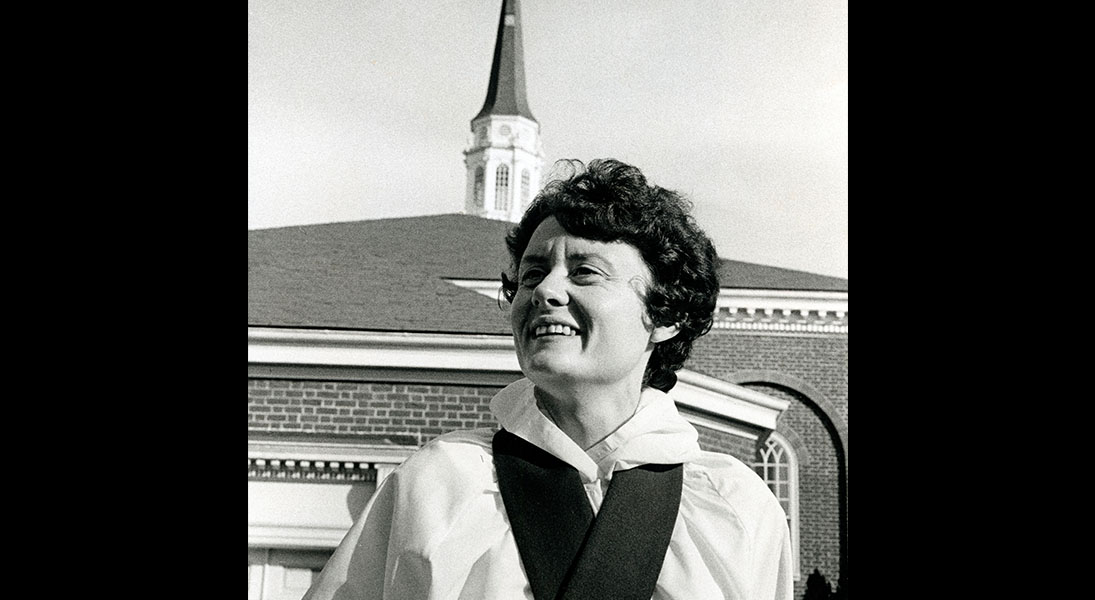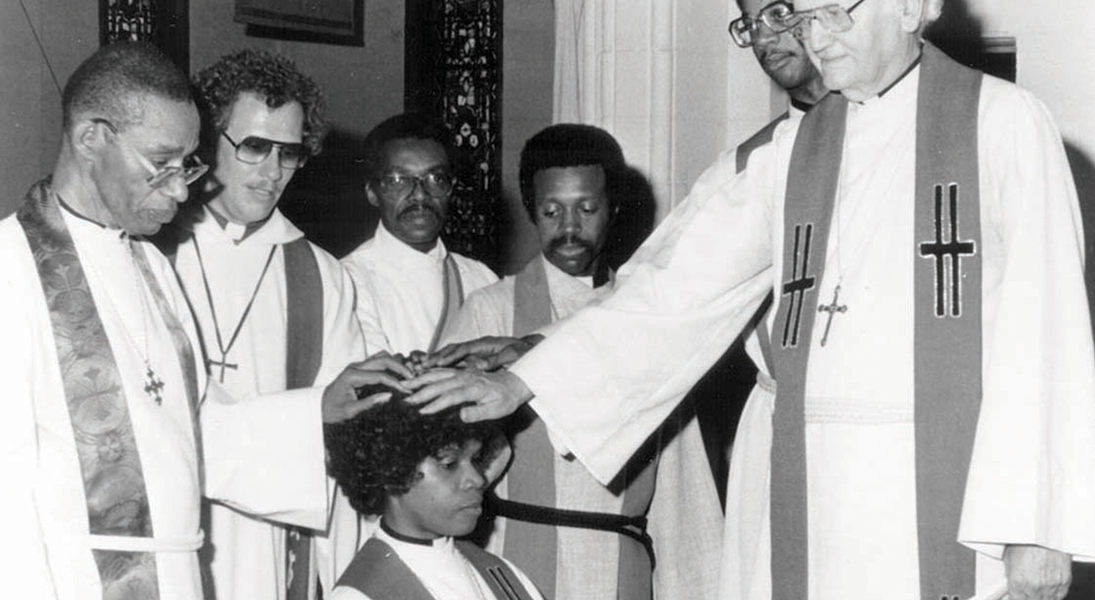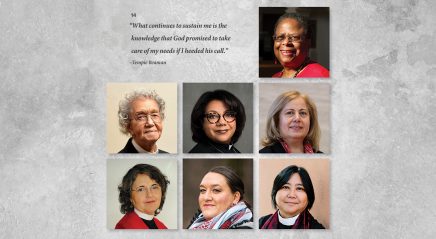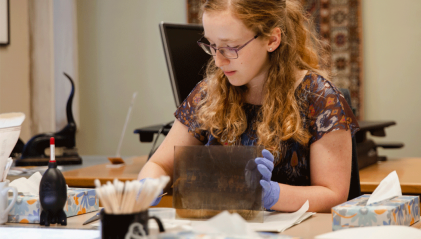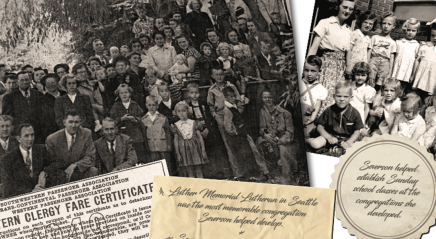When Elizabeth Platz entered seminary nearly six decades ago, things were different in the Lutheran church—and the world. Platz earned acceptance into several schools, one of which admitted that it didn’t have housing available to women on campus.
Platz ended up in Pennsylvania at the Lutheran Theological Seminary at Gettysburg (now United Lutheran Seminary). Although she wanted to study systematic theology, she was automatically enrolled in the Christian education program that catered to women students. When the time came for her to pursue an internship, she had limited choices.
“I did have pastors who told me in the nicest way they didn’t want a woman who studied systematics,” Platz said.
But she found her way—after graduating from seminary in 1965 she served as a lay minister at the University of Maryland, College Park, for five years before her historic ordination in 1970 as the first woman in North America ordained by a Lutheran church body. That year she became chaplain at the university, a position she held for 47 years.
To honor the 50th anniversary of that moment―as well as the 40th anniversary of the ordination of the first Black woman in the Lutheran church, Earlean Miller—donors to the ELCA Fund for Leaders established two scholarships: The Rev. Elizabeth A. Platz Seminary Scholarship Fund and The Rev. Earlean Miller Seminary Scholarship Fund. The Platz scholarship will benefit women pursuing seminary, and the Miller scholarship will support women of color in that same pursuit.
“Nothing excites me more than thinking about those two women, one of them being a woman of color, and knowing their scholarships are being made possible by funds given in honor of these pioneering women,” said Mark Olsen, director of the Fund for Leaders.
Miller served as a secretary for several faith organizations for more than 20 years before earning her Master of Divinity from the Lutheran School of Theology at Chicago. After her ordination in 1979, she served at Prince of Peace Lutheran Church in Greensboro, N.C. Over the years she moved on to calls in Minneapolis, Chicago and finally Columbus, Ohio, where she was pastor of Hope Lutheran Church from 1989 until her retirement in 2000.
“She gave me the strength to go through the challenges I was facing.”
Brenda Smith, ELCA program director for Book of Faith, met Miller at Hope. Struggling after a divorce and the death of her father, Smith visited the congregation after being invited by her religion professor. “I was just in awe of a woman pastor, just having a pastor that looked like me,” Smith said of meeting Miller. “It was really powerful to have that leadership be a part of my life.”
Not long afterward, Smith enrolled in seminary. Throughout school and afterward, Miller supported and inspired her journey to ministry.
“I had some apprehensions about being a pastor because I think sometimes people are used to seeing men in that role, and I thought about the challenges I would face as a female in that role,” Smith said. “But I saw that [Pastor Miller] could do that, and anytime I got pushback, I would think, ‘Bishop Miller hung in there.’ She gave me the strength to go through the challenges I was facing.”
Ray Ranker received the same sort of encouragement from Platz. As a student at the University of Maryland, he saw her as a mentor and pursued seminary in part because of the example she set. When Platz retired as chaplain at the university, Ranker succeeded her.
“She said from the get-go: ‘You are going to bring great things here; you’re going to change things,’” he said. “She gave me permission to use my gifts to do the ministry that God was calling us to do—there was no pressure to do everything just like she did. She has always been super-supportive behind the scenes. She’s somebody I talk to at least every week still on the phone.”
Creating opportunities
While Platz and Miller were trailblazers for women in the Lutheran church, they also built a legacy of creating opportunities for others to enter the ministry. These scholarships build on that by providing funds to women who otherwise might not be able to afford seminary.
“As much as it is about looking back, these two funds are as much about looking forward and the need for us to be calling … and supporting gifted women in the ministry,” Olsen said. “That’s who’s going to lead our church into the future—these new generations of leaders.”
For Platz—who has inspired multiple students to enter ministry over the years—being part of those future generations of Lutheran pastors, even indirectly, is her greatest honor. “With any door that’s opened because of this scholarship—the ordination of women or the inclusion of people of different races and orientations—I’m just humbled that people see me as some small segment to the church moving to a more inclusive body,” she said.
For more information on the Fund for Leaders, visit elca.org/fundforleaders.



